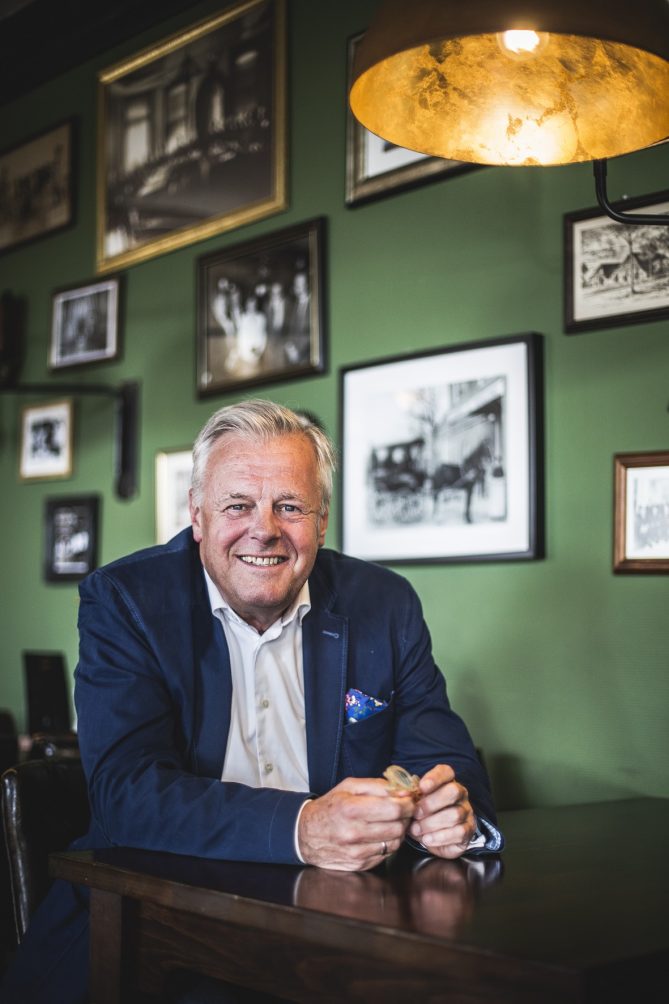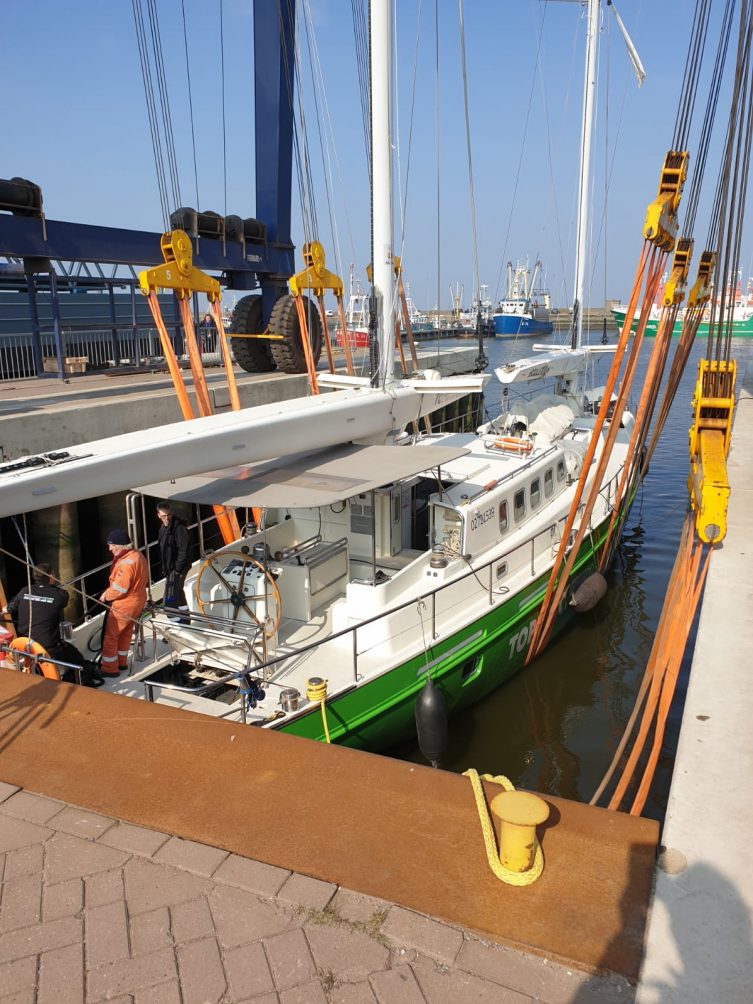
The sustainability of the Dutch fishing port of Lauwersoog is in full swing. Oil and diesel are being eliminated and hydrogen is being used to the maximum extent. “The harbor is situated on a World Heritage site, so we have to become greener,” says harbor director Harm D. Post.
The innovations in the port of Lauwersoog can be counted on one hand and its goals are ambitious. A large proportion of its fishing vessels, round-trip boats and recreational fleet must be powered by hydrogen by 2030. “We have started to develop an entire miniature hydrogen supply chain in the port,” says Post. And more developments are underway.
The ‘Sustainable Port Coalition Lauwersoog’ was set up to challenge all parties involved in the port, all the way from restaurants and to the Forestry Commission, to participate in brainstorming for its future. The port has an atypical approach when it comes to sustainability, in which duties and responsibilities do not exist. This is because, says Post, “if you attach responsibilities to the discussion, parties will drop out.” This “freestyle” approach appears to be working. “So far during each meeting, enough participants raise their hands because they want to help.”
To become greener, the port has also sought cooperation with other Wadden Sea ports, such as Eemshaven Delfzijl, Port of Den Helder and Harlingen. The goal: to avoid reinventing the wheel. “We start with knowledge sharing. Eemshaven, for example, is doing research into ways for ships to use shore power when moored. They would then be connected to a plug instead of keeping their engine running. We can then use that knowledge again.”
A nesting pontoon and interest from New Zealand
An important item on the agenda is nature conservation in the port. There is therefore plenty of cooperation with nature and environmental organizations. “Original ideas are already emerging from that cooperation,” says Post. “These are ideas that we as a traditionally economically-oriented port would never have come up with on our own.” For example, together with Rijkswaterstaat, the port bought an old Amsterdam deck barge to give birds their own nesting place. “We have completely refurbished it as a nesting area for the Arctic tern and the common tern. The common tern also comes along to nest.”

The nesting pontoon, with the name ‘Sternstee’ chosen through a contest on social media, seems like a simple idea at first glance, but it’s attracting interest from universities around the world. “The other day I received an e-mail from a university in New Zealand,” says Post. “They are creating a database of solutions such as ours. Learning together: that’s what really gets me excited.” Closer to home, the port is also seeking cooperation with knowledge institutions such as the University of Groningen (RUG). For example, together with the RUG, the port is participating in a large hydrogen project called ‘SMiLES’, to stimulate knowledge sharing. “Then we don’t all have to keep reinventing the wheel.”
The Ecolution
The Ecolution – originally built by Wubbo Ockels – is one of the ships from the port of Lauwersoog that has been converted and now sails on hydrogen. “Tests will be carried out with this ship in the near future,” says Albert Keizer, director of Next Generation Shipyards and owner of the ship. “We want to see how much hydrogen the ship consumes to see how efficient hydrogen sailing is.”
Within a year, Keizer hopes to have gained enough knowledge to convert another ship. “We have already made two preliminary designs, one for a fishing cutter and one for a tour boat.” The enthusiasm is there but unfortunately, it takes some time to get started. “Technically, we are already very far along, now we need the regulations.”

A cutter from 1896 to run on hydrogen
The ships in the port of Lauwersoog cannot be left behind in becoming more sustainable. But those who think that brand-new ships will have to be purchased are wrong. “We want to convert the existing ships. Here in Lauwersoog we have a fleet of 80 cutters, the oldest of which dates from 1896. The new-build route takes a very long time so we are doing it this way.” Still, there is a lot involved in powering boats with the new fuel and the transition is not as quick as it seems. “Everyone often thinks that transition is a snap, but it’s not that simple.” Sailing trials have to be successful, skippers have to be trained and taught how to handle hydrogen, and you have to get skeptical fishermen on board.
“For example, fishermen want to go out to sea for four or five days and are stuck in a certain sailing pattern. They want to make sure they have enough hydrogen to be able to stay at sea for a long time. So there is work to be done. “We need to start proving in the near future that it really can be done.”
Making your own green hydrogen: A plan for the future
There are ambitious plans on the table for an entirely self-sufficient hydrogen chain. Hydrogen is the future, but according to Post, there are also problems with current regulations and permits. To avoid difficulties, the port has to come up with a clever solution for the future. “We came up with the idea of making our own hydrogen right here in the port by means of a small solar park and electrolysis. It won’t create huge quantities but we can still run up to seven ships on it.”
The plans are there. The coming period will be all about whether the solar park will actually be built. “We are now working on all the permits. Once we have them in place, the park will probably be there very soon, maybe even next year.” Post hopes to get started shortly. “Because if we’re going to run on hydrogen, we want to do it right, and produce it ourselves – green and as cheaply as possible.”
We have to get rid of diesel.
Port Director Harm D. Post
Most of the sustainability projects in the port are running smoothly. Now it’s just a matter of waiting for the solar park and, above all, inspiring enthusiasm in the parties involved. “We often say: ‘Guys, our port is situated on a world heritage site. If you want to continue fishing, you have to get rid of diesel. We have to become greener. Then it will also be safe to say that your children will want to take over your business.” Fortunately, there are already many who see this. “Let the rest just sit back and watch. We’ll prove to them that it can be done.”
Read also: Groningen innovates fully with hydrogen: ‘We want to scale up’

